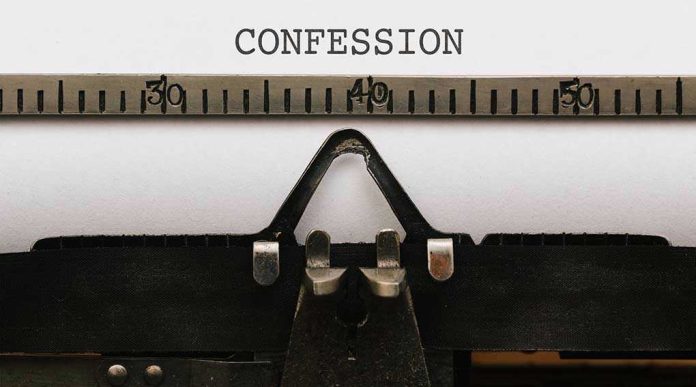
When a top Mexican cartel leader confesses that President Trump’s border crackdown is crippling cartel operations, it’s clear that strong American leadership delivers real results where past policies failed.
Story Snapshot
- A senior Sinaloa cartel figure told CNN that Trump’s enforcement is making smuggling far riskier and less profitable.
- Cartel fees for illegal crossings have surged, hurting cartel profits and deterring would-be migrants.
- The direct admission by a cartel chief validates Trump’s tough-on-border approach and exposes the failures of lenient past policies.
- U.S. and Mexican authorities are intensifying cooperation, putting unprecedented pressure on organized crime at the border.
Cartel Leader’s Admission Confirms Policy Success
In a stunning interview aired by CNN from Phoenix, Arizona, a masked Sinaloa cartel boss openly admitted that the Trump administration’s border enforcement has made trafficking drugs and migrants into the United States “much more difficult.” The cartel figure described sky-high operational risks, higher smuggling costs, and a climate of desperation within cartel ranks. This rare on-record confession not only provides an unfiltered look into the enemy’s struggles, but also stands as a potent rebuttal to critics who insisted Trump’s border agenda would be ineffective or inhumane.
The cartel leader’s candor offers what law enforcement and border communities have long reported: aggressive enforcement works. Trump’s second term, beginning in January 2025, immediately ushered in decisive executive orders—declaring a border emergency, closing loopholes for asylum seekers, and authorizing new security barriers. The administration’s designation of cartels as terrorist organizations further raised the stakes, giving U.S. agencies and Mexican allies new tools to disrupt criminal networks. As a result, illegal crossings have plummeted to levels not seen in decades, and cartel operatives themselves now publicly admit defeat on the airwaves.
Cartel Operations Hit by Soaring Costs and Enforcement
Under relentless U.S. and Mexican pressure, the Sinaloa cartel and its rivals have been forced to hike their smuggling fees from $6,500 to as much as $10,000 per person—pricing many out and reducing the flood of illegal crossings. These costs reflect increased military deployments, high-tech surveillance, and the closing of “easy” smuggling routes that proliferated under previous administrations. According to the cartel leader, operating in this environment is now “desperate,” with the organization warning would-be recruits to steer clear of cartel life. Such direct admissions are exceedingly rare and underscore just how effective current U.S. measures have been at undermining criminal business models built on open borders and lax enforcement.
Trump’s commitment to border security stands in stark contrast to the policies of the prior administration. During his first months back in office, the President authorized the Laken Riley Act, mandating detention of criminal aliens, while empowering ICE to conduct raids even in so-called “sensitive locations” like schools and churches. These bold moves have rattled criminal networks and restored hope among citizens frustrated by years of chaos and unchecked illegal entry.
Impact on Border Communities and National Security
The ripple effects of these policy changes are being felt both at the border and across the country. Migrants now face higher costs and greater risks, while communities that once bore the brunt of cartel-fueled violence report declining crime. Law enforcement on both sides of the border benefit from enhanced cooperation and resources, shrinking the operational space for traffickers. The Sinaloa cartel’s admission that profits are down and risks are up signals a turning point in the fight against organized crime, validating the push for secure borders and the rule of law. Critics who warned of humanitarian crises overlook the daily violence and exploitation cartels profit from—a reality Trump’s policies are finally confronting head-on.
While some analysts caution that cartels will adapt, the immediate impact of tougher enforcement is undeniable: fewer illegal crossings, higher costs for traffickers, and a reassessment by criminals who no longer see the U.S. as an easy target. This is precisely the result millions of Americans demanded when they voted for a return to law-and-order leadership and a rejection of the reckless, open-border agenda of the past.
Expert Analysis Validates Tough Enforcement
Security experts and law enforcement officials agree: rarely do cartel leaders speak so frankly about the effectiveness of U.S. policy. The CNN interview, corroborated by major outlets, stands as a unique window into the real-world impact of decisive executive action. As the Trump administration continues to prioritize American sovereignty, public safety, and the integrity of our immigration system, the message is clear—not only to voters, but to those who would undermine our laws: America’s resolve is back, and the days of open borders and criminal impunity are over.
Sources:
Cartel leader admits President Trump’s cartel crackdown has made lives ‘difficult’
Sinaloa cartel leader says Trump border crackdown is ‘making life impossible’







